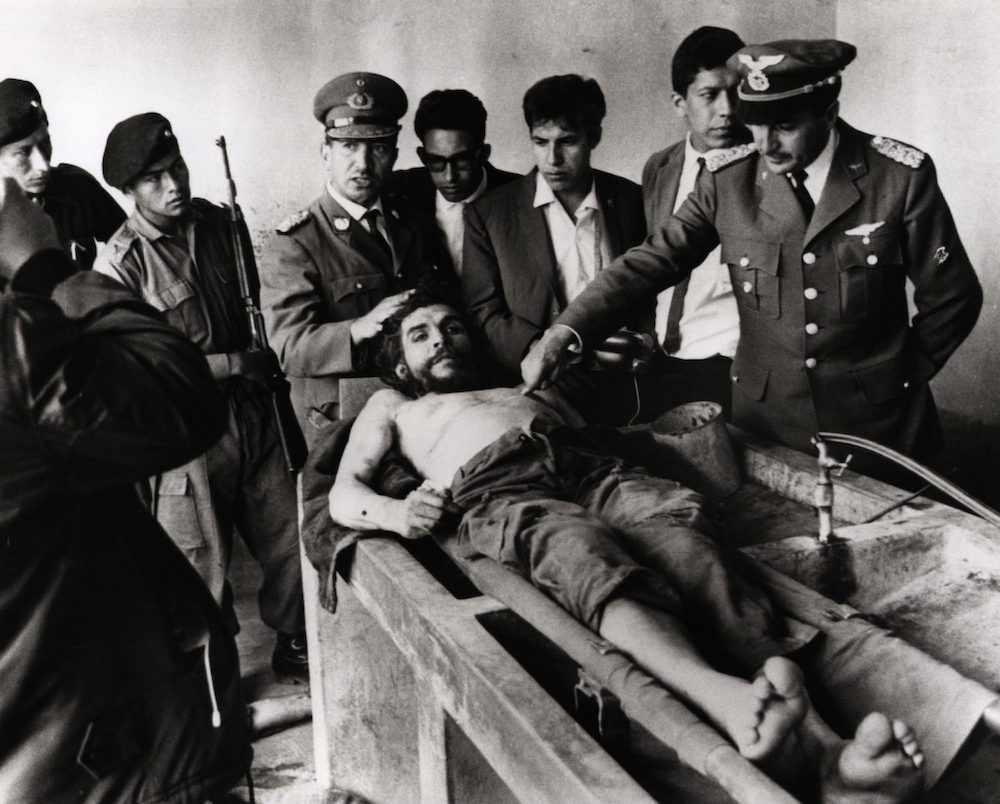Che Guevara's Death
Che Guevara was executed on October 9, 1967, in La Higuera, Bolivia. The execution was carried out by a Bolivian sergeant, Mario Terán, who was acting on orders from the Bolivian government and with the support of the Central Intelligence Agency (CIA) of the United States.
Che Guevara, who had been leading a guerrilla insurgency in Bolivia for several months, was captured on October 8 by a joint Bolivian-American military force. He was held prisoner in the village of La Higuera, where he was interrogated and tortured by his captors.
The decision to execute Guevara was made by Bolivian President René Barrientos and his advisors, who feared that if Guevara were taken alive to trial, he would become a martyr and inspire further rebellion. They also believed that his execution would be a way to send a message to other leftist rebels in the region.
The execution was carried out in a small schoolhouse in La Higuera. Guevara was blindfolded and tied to a pole. He was offered a blindfold, but refused it. He was shot by Terán and two other soldiers, who fired nine bullets into his body. Che Guevara was 39 years old at the time of his death.
Guevara's last words to Sergeant Terán is:
I know you've come to kill me. Shoot, you are only going to kill a man”
Teran fired, striking Guevara in the arms, legs and thorax. Teran was ordered to shoot below the neck because that would fit the official story that Che Guevara had died in combat.
After the execution, Che Guevara's body was taken to a nearby hospital, where it was displayed to the press and the public. His hands were cut off and sent to the CIA for fingerprint identification. The Bolivian government then buried Guevara's body in an undisclosed location.

Che Guevara's execution was widely condemned by the international community and leftist groups around the world. Many saw it as a political assassination and a violation of human rights. Guevara has become a symbol of resistance and revolution, and his image and likeness continue to be used in various forms of political and cultural expression.
The execution of Che Guevara was a crucial moment in the history of Latin America and the world. He was a charismatic and controversial figure whose ideas and actions continue to inspire and divide people to this day. His death was a symbol of the brutal repression of revolutionary movements by the US-backed military regimes in Latin America. Guevara's execution marked the end of his revolutionary career but his legacy and ideas continue to inspire people around the world who fight for social justice and equality.
It's important to note that the events that led to Guevara's execution are still disputed and debated, with some historians arguing that the US government had a direct hand in his capture and execution, while others argue that the Bolivian government acted independently. In any case, it is clear that Guevara's execution was a major event in world history, and one that continues to be studied and discussed today.
In conclusion, Che Guevara’s execution was a tragic event in the history of Latin America. Guevara was a complex figure, whose ideas and actions continue to inspire and divide people to this day. His death was a symbol of the brutal repression of revolutionary movements by the US-backed military regimes in Latin America. Guevara's execution marked the end of his revolutionary career but his legacy and ideas continue to inspire people around the world who fight for social justice and equality.
